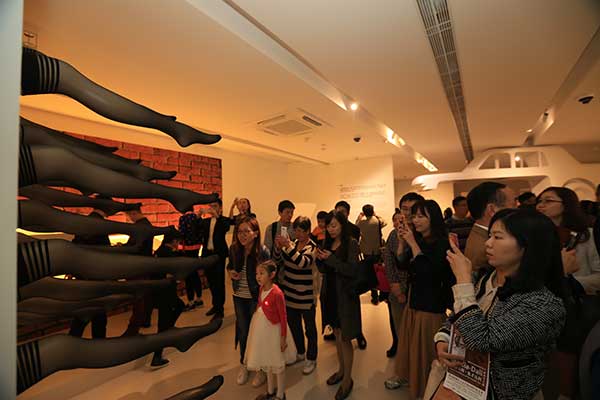 |
|
An exhibition of works by surrealist Dali in Shanghai is drawing big crowds as the city's residents develop a growing passion for work by great Western artists. |
Speaking of the growing number of shows, Adrian Cheng, the founder of K11 art foundation says: "People's interest in good quality art has been awakened. They are becoming more international in their tastes."
Last year, the Monet show at Cheng's K11 Art Mall in Shanghai attracted about 400,000 visitors within four months, which Cheng says was way beyond his expectations.
Cheng, 35, is now training his sights on the rest of China.
By 2020, he aims to have 19 art malls in cities including Beijing, Guangzhou, Shenzhen and Shenyang.
"We play the role of educating the public and guiding them on contemporary art. I hope more people have access to art in China," says Cheng, who is also a collector.
He says his target audience is people between the ages of 30 to 50 as well as young families. The international atmosphere of Shanghai and the Western lifestyles of many young people help generate a buzz about Western art in Shanghai, he says.
Besides, his business model of an art mall, which means putting a gallery into a shopping mall, provides convenience for people who are not willing to go to museums, he adds.
Wang Buke, a contemporary artist whose works are on display at the Dali show to present a dialogue between artists from East and West, says people born after the 1980s are much more influenced by Western culture.
He says his works are influenced by Western art, as it is natural for the young to accept things they grew up with.
"Our art tastes are more modern and contemporary," he says.
Zhuang Bairu, a senior manager at a Shanghai company, goes to an show at least twice a month. She says it is as common as going to the movies or having a meal at a fancy restaurant. Visiting art shows is also popular among her friends. Although some of them live far away from downtown Shanghai, they also come in to see shows.
"Not only Western master artists, I also like to see Chinese masters too," says Zhuang.
Echoing Zhuang's comment, Cheng says that as Chinese are very attached to their identity, they will also become interested in China's contemporary artists.